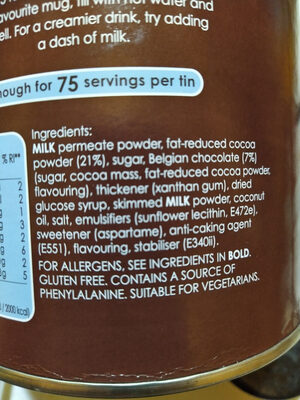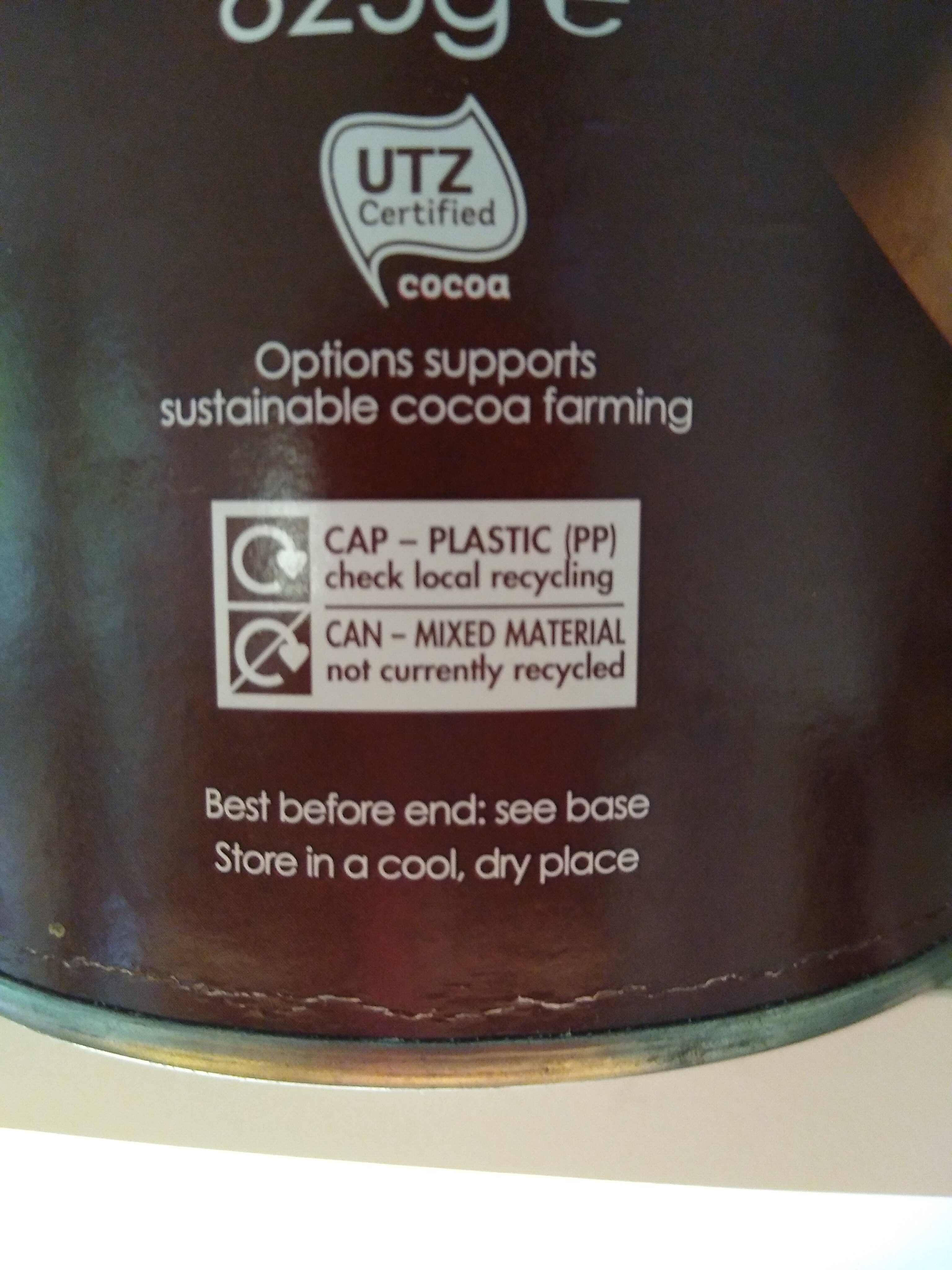Options - 825
This product page is not complete. You can help to complete it by editing it and adding more data from the photos we have, or by taking more photos using the app for Android or iPhone/iPad. Thank you!
×
Barra-kodea: 5010051023496 (EAN / EAN-13)
Kopurua: 825
Ontziratzea: en:Metal cardboard plastic
Markak: Options
Kategoriak: en:Beverages, en:Hot beverages
Etiketak, ziurtagiriak, sariak:
en:No gluten, en:Sustainable farming, UTZ Certified, UTZ Certified Cocoa
Saltzen diren herrialdeak: Espainia
Matching with your preferences
Report a problem
Datuen iturria
Product added on by kiliweb
Last edit of product page on by itsjustruby.
Produktuaren orria -gatik editatua dylsmum, openfoodfacts-contributors, packbot, roboto-app, thaialagata, yuka.UnJBOUZJMDdoT01TdFBNTTRqUFh5KzllbHNEMFZueVdjT2tRSVE9PQ.
If the data is incomplete or incorrect, you can complete or correct it by editing this page.











